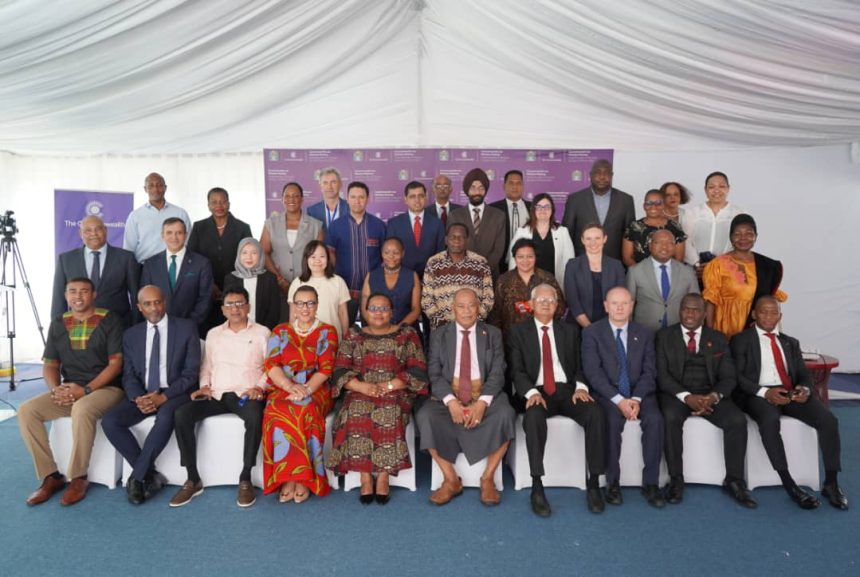By Linus Aleke, Abuja
The Commonwealth of Nations, said that its law ministers has resolved to ramp up efforts to remove barriers to access to justice and address the legal needs of all citizens.
Senior Communications Officer, Media and Public Affairs, the Commonwealth Secretariat, London, Mr. Snober Abbasi, in a statement, said that millions of Commonwealth citizens will benefit from improved people-centred access to justice as law ministers concluded their meeting in Zanzibar, with a package of new measures and pledges.
The package, he said, was shaped by four-day deliberations among ministers, with input from diverse stakeholders, including people with disabilities, civil society organizations representatives and leading innovators in the legal sector.
Mr. Abbasi, said that key provisions include improved access to justice for people with disabilities, a model law on virtual assets, a new action plan to protect women from online violence and a proposal to eliminate gender discriminatory legislation.
Ministers, he said, also welcomed an array of new Commonwealth legal resources, including a mediation guide, a small claims court app for dispute resolution and a database for cooperation on criminal matters.
Additionally, they adopted the Commonwealth guidelines on the treatment of electronic evidence in criminal proceedings, designed to offer member countries a framework to craft national legislation.
Mr. Abbasi further said that to support the implementation, ministers requested the Commonwealth Law Ministers Action Group to report progress at the next meeting, adding that the package summarises the outcome statement issued by ministers, representing one-third of humanity, at the end of their meeting on 8 February 2024.
Speaking after the meeting, the Commonwealth Secretary-General, The Rt. Hon. Patricia Scotland KC, said, the measures were absolutely critical because two-thirds of the world’s population lack meaningful access to justice.
According to her, “Our discussions have been purposeful, our decisions have been meaningful, and our powerful new consensus allows us to take the next giant steps forward towards equal access to justice, in modernised legal systems, across our wonderful Commonwealth.
“We leave Zanzibar with a powerful mandate which will allow us to take the next decisive steps to ensure justice for all is the lived experience of every one of the 2.5 billion people living in our Commonwealth”.
In their statement, ministers recognised the Secretariat’s tech-driven justice solutions and its work on artificial intelligence as important interventions in improving access to legal information and transforming justice delivery in today’s complex world.
The Secretariat also presented several papers in the field of energy and extractives, including a carbon tax model law and an oil and gas decommissioning guide, which leverage legislation in efforts to tackle climate change and deliver a just transition.
Hosted by the United Republic of Tanzania from 4 to 8 March 2024, the meeting was chaired by Hon Ambassador Dr Pindi H. Chana, the country’s Minister of Constitutional and Legal Affairs, who commended the substantive outcomes.
Officiating the closing ceremony on 8 March 2024, Ms.Hussein Mwinyi, President of Zanzibar, expressed optimism that the meeting has recorded a number of achievements, which challenge member states to undertake reforms in an effort to ensure that justice is accessible to all.
“I am aware of efforts that the Commonwealth countries have taken to shape its agenda on the rule of law and access to justice. It is high time that you made the same efforts on access to justice through digitisation,” she concluded
Mr. Abbasi said the outcomes of the meeting will shape the agenda for the upcoming Commonwealth Heads of Government Meeting (CHOGM) in Samoa later this year.
The next meeting, he concluded will be hosted by the Government of Fiji in February 2026.












